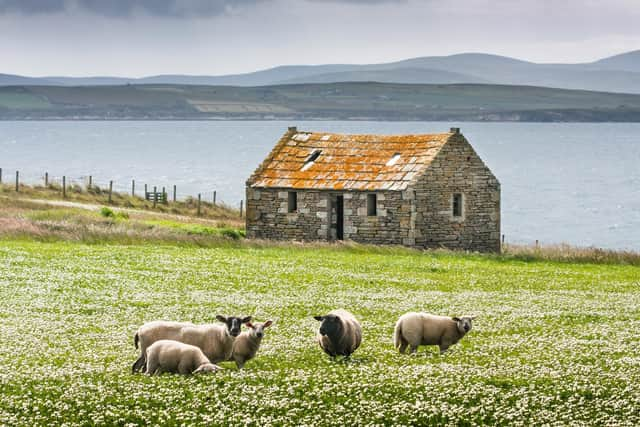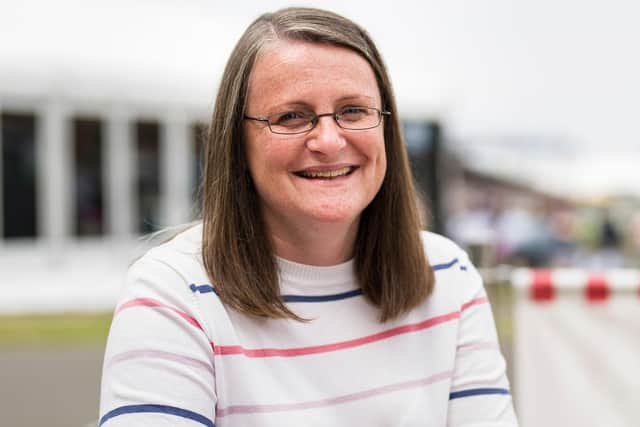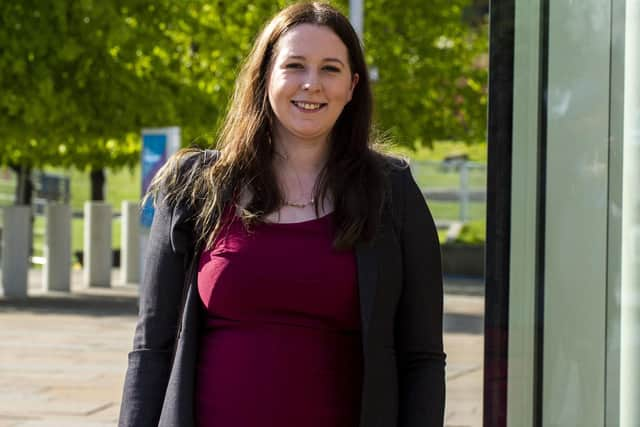Scotland visa proposal to address depopulation branded a gimmick amid housing crisis in rural areas
New visa proposals to address depopulation have been described as “another gimmick headline policy” as the rural housing crisis continues to drive residents away from their home.
The new Building A New Scotland paper, published by the Scottish Government last week, sets out proposals for a migration policy if Scotland were to go independent. The plans set out how a new “Live in Scotland” visa would support migration to rural and island communities to help to address depopulation.
Advertisement
Hide AdAdvertisement
Hide Ad

Scottish Government consultations have shown depopulation – when more people leave than move or return to a place, and when the number of deaths outstrips births – was the biggest issue islanders faced.
Influencing factors reported included poor access to affordable housing, healthcare, good internet and infrastructure, employment, schools, reliable public transport, childcare and fuel.
Migration minister Emma Roddick said supporting inward migration could help address population challenges in rural areas, and could also benefit sectors like house-building that have struggled with recruitment since the UK left the EU.


Previous schemes put forward by ministers have been heavily criticised by rural communities, including the island bond plan, which involved proposing 100 young families were given up to £50,000 to move to Scottish islands. It was scrapped last year after islanders said it would be a "short-term fix" that could open up divisions without tackling the root cause of the problem. A consultation also found most who favoured the policy were non-islanders.
It seems there is a similar feeling with the newly proposed visa approach.
Isle of Skye resident and architect Martin Baillie said the move was like “trying to put a little bit more water in a bucket with a hole in it”.


“We are still ‘leaking’ people,” he said. "It’s not the lack of people who want to live here that’s the issue. It’s the fact that the people who do live here can’t raise a family because there’s isn’t the infrastructure to do so. Once children grow up and leave school, there isn’t the housing for them to move to.
“Newcomers who have been here for several years are facing the same issues islanders have been facing and are leaving.
Advertisement
Hide AdAdvertisement
Hide Ad“There was an outcry about the island bonds, and using visas to bring more people here is the same sort of gimmick headline policy. It really doesn’t address the fundamental issue that is creating the problem.”
Housing


Mr Baillie, who is an avid campaigner for housing reform, said one of the main causes of depopulation is the property market.
Local estate agents have said houses in areas across the Highlands and islands are being sold for their values as rental properties, rather than for their value as residences. Properties can therefore often be sold for more than 30 per cent – and up to 50 per cent – over the Home Report value.
There are efforts to build more homes in rural areas for social housing, but the price hikes are leaving those who do not qualify such as teachers, lawyers, architects and medical professionals to struggle to compete with investors, retirees, and second-home buyers, to buy their own home.
Figures from this year
The 2023 Rural and Islands report by Scotland’s Rural College (SRUC) showed a clear trend of significant house price inflation from 2004 to 2021, most notable in the islands and very remote mainland areas, where weighted average prices increased by 102 per cent and 92 per cent respectively, compared to 71 per cent in urban areas.
Another issue pushing prices up is the second home market. High proportions of second and vacant homes are a particular, and persistent, challenge in island (13 per cent ) and very remote mainland (11 per cent) locations, the report said.
Data showed some specific rural and island communities have more than a third of their housing stock taken up by second homes – Millport on the island of Great Cumbrae, and Earlsferry in Fife.
"Schemes like help to buy and the island bonds are essentially subsidising a price increase in the market,” Mr Baillie said. "The market has to be regulated. Until that is recognised, anything else, like this visa proposal is just a sticking plaster approach.”
Advertisement
Hide AdAdvertisement
Hide AdHe pointed to the Channel Islands as an example of a more balanced property market.
Guernsey, for example, operates a two-tier housing market: a ‘local market’ and an ‘open market.’ The former is for people who were were born and grew up in Guernsey, have a strong family connection to the place, or those who take on jobs where there is a shortage of suitable local candidates, while the latter is more freely available, far more expensive and with a very limited supply.
Scotland’s new short-term let (SLT) legislation, which came into force last month, has been viewed as one way of tackling the housing demand crisis to prevent further depopulation.
Some rural businesses are against the policy, including members of the the Scottish Bed and Breakfast Association, which said two-thirds of B&B owners were considering shutting their doors over the new restrictions.
But it has been seen as potential gateway to bring more regulation to the “change of use” of a property to ensure there are more houses to be sold as homes.
Visa only part of the solution
Ana Vuin, an author of the SRUC report, said introducing visas would only be part of the solution to address depopulation.
She said measures to retain newcomers were essential, and the Building A New Scotland paper needed more detail to explain how ministers plan to do this.
“You have these burning questions on infrastructure, transport, housing and poverty in rural communities, and so it’s understandable that they are frustrated and challenged by reading policies that are aiming to bring new people in without addressing these issues,” she said.
Advertisement
Hide AdAdvertisement
Hide Ad“If you want to fill out the gaps in depopulated areas with newcomers, you need to make sure they want to stay.
"This prompts the question of recruitment and retention. If the policy focuses on recruitment, there is no pathway to retention which we have encountered in the literature in the last ten years with health professionals in rural areas.
"Migrants are human beings and they might not want to stay in repopulated areas after three years and that’s no bad thing. But what should be available to them is infrastructure, housing, health services [etc], so they can stay if they want to.”
With rural communities across Scotland being so diverse, addressing depopulation will require a holistic approach, with more nuanced solutions in certain areas, said Dr Jane Atterton, manager at the Rural Policy Centre SRUC.
“Demographic change and the range of issues including wellbeing, transport, housing are so interlinked, so to have a proposal which says we will attract so many people through a visa scheme or give a financial incentive to move is a narrow way of looking at it,” she said.
"It’s really about working with a community to decide what’s best for them. You need the quantitative data analysis, but you also need to hear the voices of the communities and the lived experience, which is often what is missing when the Scottish Government comes up with targets or schemes. It can’t just be consultation. It’s about really listening.”
In response, Ms Roddick pointed to the Scottish Government’s 2021 Population Strategy which sets out its understanding of the demographic challenges and opportunities facing Scotland, and its forthcoming Addressing Depopulation Action Plan, which will look at ways of supporting communities affected by population decline.
She said the Scottish Government remains committed to deliver 110,000 affordable homes by 2032, of which at least 70 per cent will be for social rent and 10 per cent in rural and island communities.
Advertisement
Hide AdAdvertisement
Hide AdMs Roddick added: “With the full powers of a normal independent nation, we could not only ensure our approach to migration meets Scotland’s needs, but also have the funding levers at our disposal to invest more in housing and infrastructure.”
The UK Government has previously said depopulation in rural areas of Scotland cannot be remedied by immigration as rural areas may struggle to retain migrants for the same reasons as with the local population. A spokesperson said investment in jobs and infrastructure – which devolved administrations have powers to address – must be considered.
Comments
Want to join the conversation? Please or to comment on this article.
